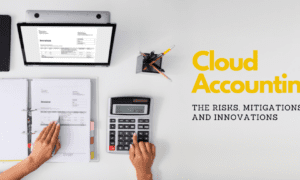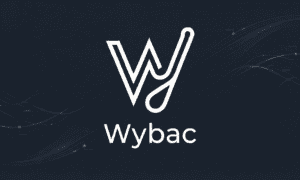In today’s fast-paced digital world, businesses constantly seek innovative solutions to streamline their operations and enhance efficiency.
Cloud accounting software is one such groundbreaking technology that has transformed how businesses manage their finances.
This cutting-edge tool offers a myriad of benefits that are revolutionizing the financial landscape for businesses of all sizes.
Accessibility and Flexibility
One of the key advantages of cloud accounting software is its unparalleled accessibility.
Unlike traditional accounting systems confined to a single desktop, cloud-based solutions allow users to access financial data anytime, anywhere, as long as they have an internet connection.
- Remote Access: Cloud accounting software allows users to access financial data from anywhere, at any time, and through any device with an Internet connection
- Increased Security: Cloud accounting software providers invest in robust security measures to protect financial data from cyber threats, ensuring data is stored securely in highly protected data centers with redundant backups
- Real-time Data Analysis: Businesses benefit from real-time access to financial data, enabling them to monitor their financial health, track key performance indicators (KPIs), and make data-driven decisions.
Cost-Effectiveness and Scalability
Cloud accounting software eliminates the need for costly hardware installations and maintenance, making it a cost-effective solution for businesses looking to optimize their financial management processes.
Additionally, cloud-based systems offer scalability, allowing businesses to easily adjust their accounting resources based on their evolving needs.
- Less Administration: Cloud accounting eliminates time-consuming tasks like software installation and backups, freeing up staff for productive activities.
- Always Up-to-Date: Cloud software is automatically updated, ensuring access to the latest version without manual upgrades
- Automation: Cloud platforms automate tasks like importing transactions and generating invoices, reducing manual work and enhancing efficiency
- Lower Costs: Cloud accounting is cost-effective, eliminating the need for expensive hardware and IT infrastructure, making it more affordable for businesses
- Scalability: Cloud accounting software scales seamlessly, allowing businesses to adjust resources as needed without costly upgrades
Collaboration and Integration
Collaboration is essential for modern businesses to thrive in a competitive marketplace. Cloud accounting software facilitates seamless collaboration among team members, accountants, and other stakeholders by enabling real-time access to financial data and reports.
Furthermore, cloud-based systems integrate with a wide range of third-party applications and tools, allowing businesses to create customized workflows that align with their unique requirements. This integration capability enhances productivity and connectivity across different departments within an organization.
- Streamlined Workflow Management: Cloud-based systems offer features like task management and document sharing that enhance workflow efficiency and coordination among accounting teams and clients
- Integration Capabilities: Cloud accounting software can integrate with a variety of third-party applications and tools, enabling businesses to create customized workflows that align with their unique requirements.
- Real-time collaboration features enable multiple users to work on the same data simultaneously, fostering efficient teamwork and communication
Some best practices for using Cloud-Based Accounting Software as a Remote Bookkeeping
Cloud-based accounting software offers numerous benefits for remote bookkeeping, making the process efficient and secure. Here are some key best practices and considerations based on the search results:
- Remote Bookkeeping Efficiency: Cloud-based accounting allows for daily data entries, report generation, and financial management remotely, providing accurate financial reports for critical decision-making
- Cloud Security: Implement cloud security best practices to protect sensitive financial data, including encryption, secure premises, regular security audits, and user authentication methods
- Benefits of Cloud Accounting: Cloud accounting software streamlines bookkeeping tasks, reduces costs, increases efficiency, and facilitates collaboration among team members
- Software Applications: Utilize reliable cloud-based accounting software like Xero, QuickBooks Online, or Wave Accounting for secure access to financial data and efficient management of clients’ books
- Time Tracking and Project Management: Use tools like Xero Practice Manager, Asana, or Trello for efficient time management and project tracking in a remote accounting practice
- Data Encryption: Encrypt data while in transit and at rest to ensure the security of sensitive information when working remotely as a bookkeeper or accountant
Top 5 popular Cloud-based Accounting Software for Remote Bookkeepers
Some popular cloud-based accounting software for Remote Bookkeeping Services include:
- Xero: Offers invoicing, expense tracking, bank reconciliation, and financial reporting, with a user-friendly interface and flexible reporting tools.
- QuickBooks Online: Provides features like invoicing, expense tracking, and financial reporting, with a focus on small businesses.
- Wave: Offers invoicing, expense tracking, and financial reporting, with a free version available
- FreshBooks: Known for its client invoicing feature connected to a time-tracking component, and expense organization automation.
- Zoho Books: Provides a wide range of solutions, including consolidated reporting, with a free trial and free plan available.
These cloud-based accounting software solutions are designed to help remote bookkeepers manage their clients’ financial data securely and efficiently.

































